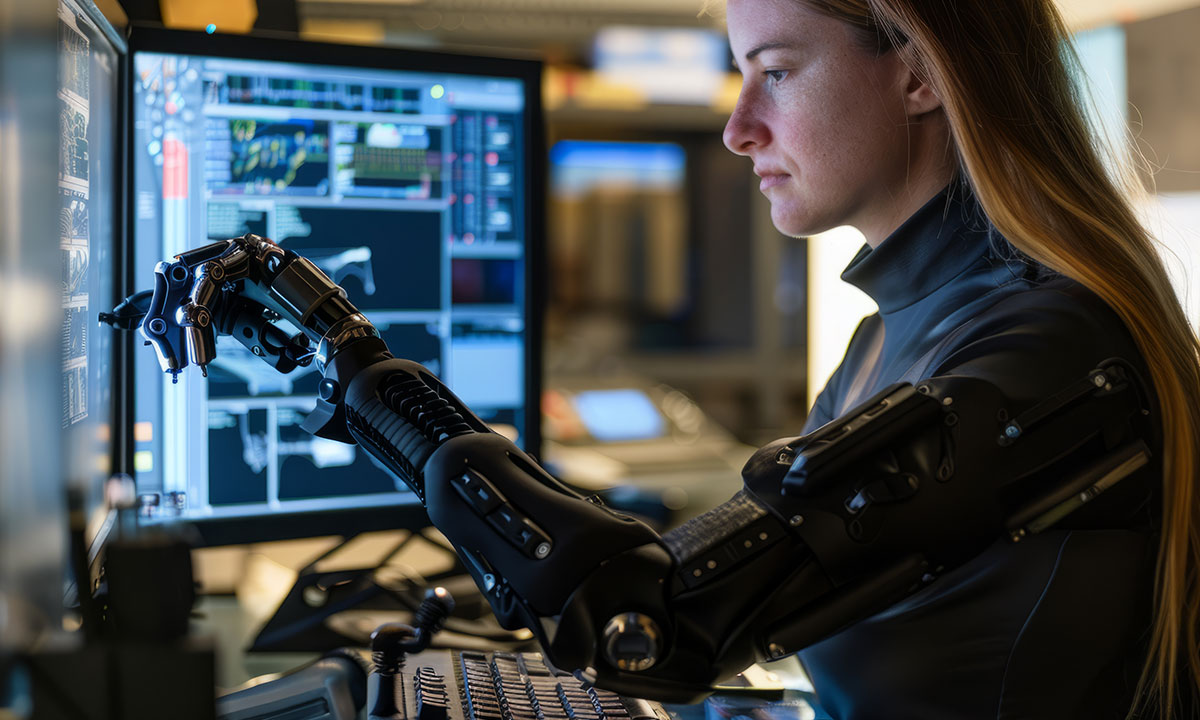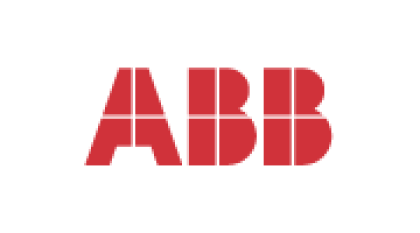Welcome to the future of automation, where Industrial Human Machine Interface (HMI) systems are revolutionizing industries worldwide. In this blog post, we will delve into the exciting world of HMI panels and Industrial PCs, exploring their benefits, applications, and cutting-edge features that are shaping the way businesses operate in today's digital age.
The Future of Automation: Exploring the Benefits of Industrial HMI Systems
As we look towards the future of automation, Industrial HMI systems stand out as key players in streamlining operations and enhancing productivity. These advanced systems offer a user-friendly interface that allows seamless interaction between humans and machines, paving the way for increased efficiency and operational excellence. With cutting-edge technology and innovative features, industrial HMIs are redefining the way industries operate, setting new standards for performance and reliability in the digital era.
Overview of HMI Panels and Industrial PCs
In the world of automation, HMI panels and Industrial PCs play a vital role in enhancing efficiency and productivity. HMI panels are user interfaces that allow operators to interact with machines, displaying real-time data for monitoring and control. On the other hand, Industrial PCs are rugged computers designed to withstand harsh industrial environments while providing computing power for various applications.
HMI panels typically feature touchscreens or keypads for input, making them user-friendly and intuitive. Meanwhile, Industrial PCs offer processing capabilities suitable for demanding tasks in industrial settings. Together, these technologies form the backbone of modern automation systems, revolutionizing industries across the globe.
Product Categories
Industrial HMI systems come in various product categories to cater to different industry needs. These categories typically include touchscreen panels, panel PCs, industrial monitors, and rugged tablets. Touchscreen panels are intuitive interfaces that allow users to interact with the system easily. Panel PCs combine a display monitor with a computer for enhanced functionality and performance. Industrial monitors provide visual feedback for monitoring processes efficiently, while rugged tablets offer portability and durability in challenging environments. Each product category serves specific purposes within industrial automation, providing solutions tailored to diverse requirements across industries.
Advantages of HMIs and IPCs
Industrial HMI panels and IPCs offer numerous advantages in automation processes. They provide a user-friendly interface that simplifies complex operations, allowing for easier monitoring and control of industrial systems. This intuitive design enhances efficiency and productivity by reducing the time required for training operators on new equipment.
HMIs and IPCs improve data accuracy through real-time visualization, enabling quick decision-making based on accurate information. Additionally, these systems increase flexibility by allowing customization to meet specific industry requirements, ultimately leading to enhanced performance and cost-effectiveness in industrial settings.
Outstanding Package: Design, Quality, and Service
When it comes to industrial HMI systems, the package of design, quality, and service plays a crucial role. The design of HMI panels and industrial PCs should not only be functional but also visually appealing, blending seamlessly into any industrial environment.
Moreover, the quality of these systems is paramount for their performance and longevity. Industrial HMIs need to withstand harsh conditions while delivering top-notch functionality consistently. Coupled with excellent customer service, this outstanding package ensures that users get reliable support throughout their automation journey.
Applications of HMI Panels in Industry
HMI panels find extensive applications in various industries due to their user-friendly interface and ability to streamline processes. In manufacturing, they are used for monitoring production lines, tracking inventory levels, and controlling machinery with precision. Additionally, in the automotive sector, HMI panels assist in monitoring vehicle assembly processes and quality control checks.
Furthermore, HMI panels play a crucial role in the pharmaceutical industry by enabling operators to oversee batch processing, monitor equipment performance, and ensure compliance with regulatory standards. Their versatility makes them indispensable tools across different industrial sectors worldwide.
Industrial PCs: Computers for Various Industrial Applications
Industrial PCs, also known as IPCs, are specialized computers designed to withstand harsh industrial environments. These rugged devices are tailored for various applications in manufacturing, automation, and control systems. With their robust construction and reliable performance, industrial PCs play a crucial role in enhancing operational efficiency and productivity.
Equipped with powerful processors and expansion capabilities, industrial PCs can handle complex tasks such as data acquisition, visualization, and process control. Their durability and compatibility with industry-specific software make them indispensable tools in modern industrial settings.
Software for Visualization in Automation
Software for visualization in automation plays a crucial role in enhancing efficiency and productivity in industrial processes. These programs allow users to monitor operations, analyze data, and make informed decisions in real-time. By providing interactive interfaces with graphical representations of data, software for visualization simplifies complex information for better understanding.
With customizable dashboards and intuitive controls, these software solutions enable seamless integration with various hardware components to create a comprehensive automation system. Additionally, advanced features such as remote monitoring and predictive maintenance contribute to optimizing performance and minimizing downtime in industrial settings.
Security Features in Industrial HMIs
In the realm of industrial automation, security is paramount when it comes to HMI systems. Industrial HMIs are equipped with robust security features to protect sensitive data and prevent unauthorized access. These security measures include user authentication, role-based access control, encrypted communication protocols, and audit trails to track system activity.
By implementing these advanced security features, industrial HMIs ensure that only authorized personnel can access critical information and make changes to the system settings. This helps safeguard against potential cyber threats and ensures the smooth operation of industrial processes without compromising on data integrity or confidentiality.
Wireless Connectivity in Industrial HMI Systems
In the realm of industrial automation, wireless connectivity plays a crucial role in enhancing efficiency and flexibility. Industrial HMI systems equipped with wireless capabilities enable seamless communication between devices, allowing for real-time monitoring and control from anywhere within the facility. This level of connectivity reduces downtime, increases productivity, and provides greater accessibility to critical data for decision-making processes.
With the integration of wireless technology into industrial HMI systems, operators can remotely access information without being tied down by physical connections. This not only streamlines operations but also opens up possibilities for remote troubleshooting and maintenance tasks, ultimately contributing to overall operational excellence in industrial settings.
Power Management and USB Power Switch
When it comes to industrial HMI systems, efficient power management is crucial for optimal performance. Industrial PCs equipped with USB power switches offer the flexibility to control power distribution effectively.
These USB power switches allow users to remotely manage and monitor power usage, enhancing energy efficiency and reducing downtime. With this feature, industrial processes can be streamlined and controlled more efficiently.
Air Conditioning GPIO and Temperature Sensor
Industrial HMI systems are equipped with advanced features like Air Conditioning GPIO and Temperature Sensor capabilities. These components play a crucial role in maintaining optimal operating conditions for the equipment housed within the industrial environment. By monitoring and controlling temperature levels, these sensors ensure that sensitive machinery functions efficiently without overheating or experiencing temperature-related malfunctions.
The integration of Air Conditioning GPIO and Temperature Sensors into industrial HMI systems enhances operational performance by providing real-time data on environmental conditions. This proactive approach allows for timely adjustments to be made, ensuring a stable and controlled working environment conducive to productivity and longevity of industrial equipment.
Design Resources and Training for Industrial HMIs
Design Resources and Training for Industrial HMIs play a crucial role in optimizing system performance. Companies offering industrial HMI solutions often provide access to comprehensive design resources, including templates, libraries, and tools that streamline the development process. These resources enable engineers to create intuitive interfaces tailored to specific industry needs.
Training programs are also essential for maximizing the potential of industrial HMIs. By educating users on best practices and advanced features, companies ensure efficient operation and troubleshooting of these systems. Ongoing training equips personnel with the knowledge needed to leverage the full capabilities of industrial HMI technology.
Support Services for Industrial HMI Systems
Industrial HMI systems play a pivotal role in the automation of various industries, offering numerous benefits such as enhanced productivity, efficiency, and user-friendly interfaces. As technology continues to advance, the demand for industrial HMI panels and IPCs will only increase.
To ensure that these systems operate seamlessly and efficiently, support services are crucial. From installation assistance to troubleshooting guidance, reliable support services can make a significant difference in maximizing the performance of industrial HMI systems. Companies that provide comprehensive support services help businesses optimize their operations and minimize downtime.
Investing in high-quality industrial HMI systems coupled with excellent support services is essential for companies looking to thrive in an increasingly automated world. Stay ahead of the curve by embracing the future of automation with advanced industrial HMI solutions tailored to meet your specific needs.

























